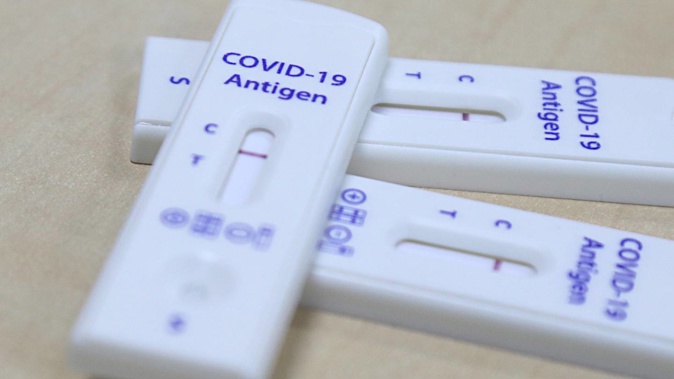
It’s now unclear whether New Zealand will get large-scale Covid-19 prevalence surveys that experts have long been calling for, with health officials signalling a change of plans.
The Ministry of Health originally aimed to launch two surveys after New Zealand’s first Omicron wave, which peaked around this time a year ago, but we’re still yet to see one.
Experts have repeatedly sounded the need for these surveys – regularly testing a representative sample of the population – as they’d provide an invaluable picture of our Covid-19 infection landscape over time.
While an infection prevalence survey offered a snapshot of the amount of Covid-19 in our communities at a given time, a separate sero-prevalence survey drew on antibody testing to tell us much about levels of immunity in the population.
Such surveys have long been running in the UK, and also in Australia, which launched its own back in March 2022.
Last July, former director-general of health Dr Ashley Bloomfield said surveys were expected to start soon, with a prevalence survey running over six months and testing around 1000 people each week.
Later, in November, deputy director of health Dr Andrew Old told RNZ the survey had been delayed until 2023, with a second phase not due to start until July.
Old put the delays down to “Covid-19 and winter illness surge on our health sector, as well as the resetting of roles and responsibilities, governance, priorities and budgets prompted by the health sector reforms.”
Now, it’s understood plans have taken a different turn, with surveying proposed for a demographic sub-set, rather than a large sample of the wider population.
The Herald asked the ministry what exactly was being planned, when the surveys were due to launch, how many participants would be involved, and why it was that a year had passed without surveys beginning.
Instead of answering specific questions, a spokesperson responded with a brief statement saying that, upon receiving expert advice, the ministry had recently worked on a “changed way forward”.
“The change in direction acknowledges the shift in Aotearoa’s Covid-19 environment,” a spokesperson said.
“Key stakeholders are now being engaged on this decision and it is expected the ministry can provide a further update in late April.”
Covid-19 modeller Dr Dion O’Neale said prevalence surveys would be “incredibly useful” for monitoring New Zealand’s true immunity landscape.
Without one, it was difficult to assess our current case ascertainment rate (CAR), which is the proportion of Covid-19 cases that were being picked up or reported at a given time, out of the total infections occurring in the population.
As at late 2022, the CAR was thought to be just 30 per cent - with a higher rate in adults but a lower one in children – meaning about two-thirds of cases are probably going undetected.
/cloudfront-ap-southeast-2.images.arcpublishing.com/nzme/DJKDB7ILDZHX7GGNWUV3U4S7NA.jpg)
Covid-19 modeller Professor Michael Plank.
Fellow modeller Professor Michael Plank however acknowledged the public health threat posed by Covid-19 had changed “enormously” over the last 12 months.
“Although from a scientific point of view, getting representative data on the true number of Covid infections would be gold dust, it may seem from a public health point of view that this kind of data is not so essential,” he said.
“We are no longer in the emergency phase of the pandemic where we need to react strongly to very rapidly changing situations.”
Still, he added there were areas where this kind of data could provide significant public health benefits.
“If a new variant arrives that causes more severe disease, it will be very difficult to detect without knowing the true number of infections,” he said.
“And having representative data on infections could help build a more accurate picture of how much vaccines and boosters reduce transmission, on top of the known benefits in reducing severe disease.
“Designing an infection survey where samples can be tested for multiple viruses and that ensures the needs of at-risk communities are met would be good ways to ensure it delivers good value for money.”
Otago University epidemiologist Professor Michael Baker agreed any prevalence survey launching now should capture data on a range of viruses – namely respiratory infections – rather than Covid-19 alone.
Last year would have been the optimal time for a Covid-focused survey.
“Now we need robust surveillance of serious respiratory infections, including Covid-19, influenza, and RSV.
Baker saw it as “critically important” to identify the purpose of the surveillance system and the questions that we need to answer on an ongoing basis.
“Such surveillance is vital public health infrastructure and also needs to be there for future pandemics, which are most likely to be respiratory viruses.”
He suggested the simplest and most sustainable option could be to establish a series of respiratory disease sentinel surveillance sites.
“There are good working models already operating in New Zealand, including the WellKiwis cohort which covers influenza and Covid-19 in the community, and SARI surveillance for severe acute respiratory infections admitted to hospital.
Baker also felt that expanding and properly resourcing these systems was probably a better long-term investment in our health security that short-term surveys.
“That would give us the good data we really need to deal with future pandemic viruses, as well as the endemic ones that we already have.”
Take your Radio, Podcasts and Music with you









